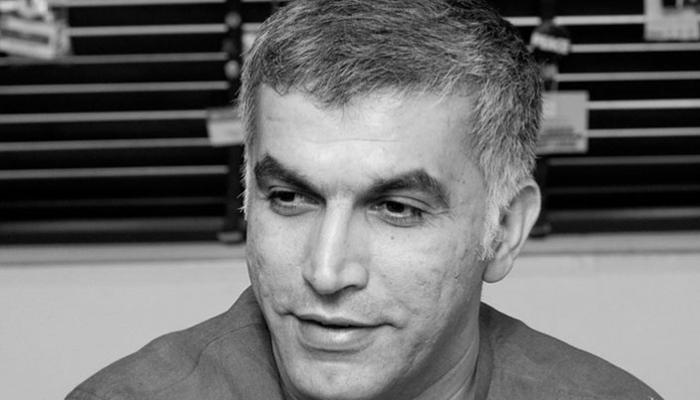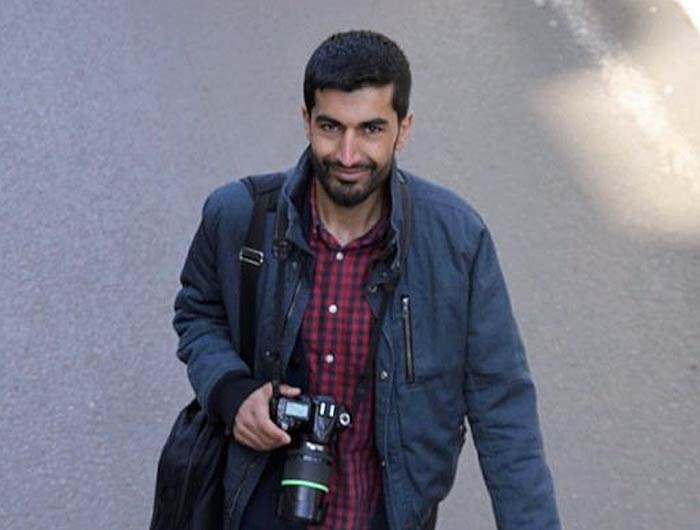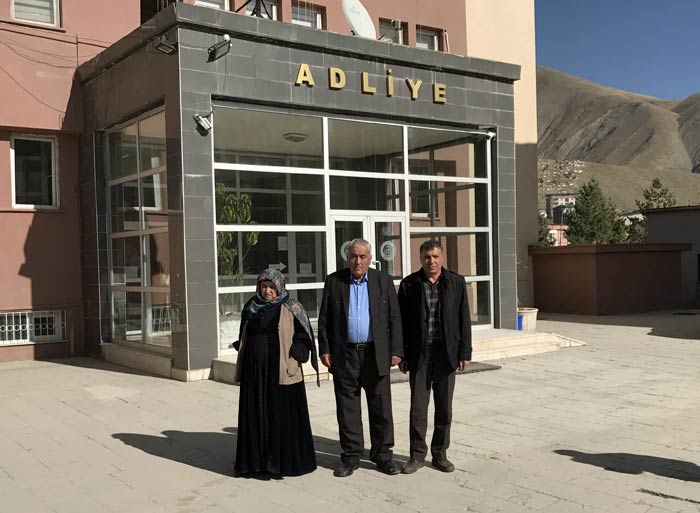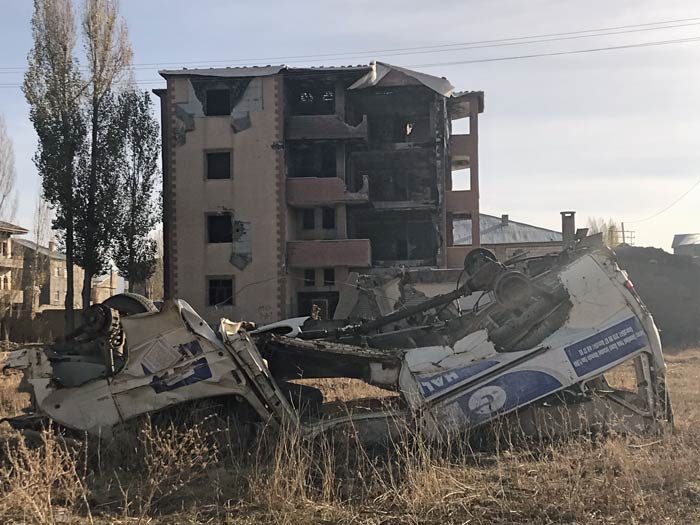21 Nov 2017 | About Index
[vc_row][vc_column][vc_column_text]Index on Censorship joins with a coalition of organisations to write to governments about the ongoing judicial harassment of 2012 Freedom of Expression Award-winner Nabeel Rajab.

Bahraini activist Nabeel Rajab
We write to ask you to urgently raise, both publicly and privately, the case of Nabeel Rajab, one of the Gulf’s most prominent human rights defenders, who on 22 November 2017 is expecting the conclusion of his appeal against a two-year prison sentence for stating that Bahrain bars reporters and human rights workers from entry into the country. We urge your government to support Mr Rajab by condemning his sentencing and calling for his immediate and unconditional release, and for all outstanding charges against him to be dropped.
The Bahraini government is clearly setting out to prosecute and punish Mr Rajab for his human rights work, doing so in violation of both the principles of a fair trial and the right to freedom of expression. The targeting of Mr Rajab for his work and comments reflects the dangerous situation for human rights defenders in Bahrain. Silence over reprisals against individuals exercising their right to free expression emboldens the Government of Bahrain to pursue further reprisals. Mr Rajab is one of many Bahraini human rights defenders who have suffered reprisals in 2017. Human rights defender Ebtisam al-Sayegh was tortured and sexually assaulted by the National Security Agency in May and arrested for her work in July; since released from jail, she faces anti-terrorism charges. Three family members of UK-based campaigner Sayed Ahmed Alwadaei were arrested, tortured and sentenced to three years in prison in October.
Mr Rajab, who is President of the Bahrain Center for Human Rights (BCHR), Founding Director of the Gulf Centre for Human Rights (GCHR) and Deputy Secretary General of FIDH, has been detained since his arrest on 13 June 2016. He was held largely in solitary confinement in the first nine months of his detention, violating the UN Standard Minimum Rules for Non-Custodial Measures (Tokyo Rules) which state: “pre-trial detention shall be used as a means of last resort in criminal proceedings, with due regard for the investigation of the alleged offence and for the protection of society and the victim.” The human rights defender was transferred to Jau Prison on 25 October 2017, having been hospitalised since April after a serious deterioration of his health resulting from the authorities’ denial of adequate medical care and unhygienic conditions of detention.
Mr Rajab was subjected to humiliating treatment on arrival at Jau Prison, when guards immediately searched him in a degrading manner and shaved his hair by force. Prison authorities have singled him out by confiscating his books, toiletries and clothes, and raiding his cell at night. Mr Rajab is isolated from other prisoners convicted for speech-related crimes and is instead detained in a three-by-three meter cell with five inmates, among them convicted Daesh affiliates. Prison officers have threatened him with punishment if he speaks with other inmates, and he is not allowed out of his cell for more than one hour a day. One of Mr Rajab’s outstanding charges is that he spoke out about the degrading treatment in Jau Prison. The evidence he and BCHR gathered proving torture in the prison was exposed in a joint-NGO report, Inside Jau, in 2015. Human Rights Watch also reported on the same incidents of torture.
Mr Rajab’s two-year sentencing on 10 July 2017 was on charges of “publishing and broadcasting false news that undermines the prestige of the state” under article 134 of Bahrain’s Penal Code, in relation to his statement to journalists that the Bahraini government bars reporters and human rights workers from entering the country. The Lower Criminal Court held nine hearings during Mr Rajab’s hospitalisation which he was unable to attend. His appeal began in September; on 8 November, Mr Rajab’s lawyers disputed the charge by submitting video evidence of journalists and researchers being denied entry into Bahrain, however the court, led by Judge Bader al-Abdulla, refused to allow the evidence in court.
Mr Rajab had a separate hearing on 19 November 2017 in a concurrent case relating to his tweets about torture in Bahrain’s notorious Jau Prison and the Saudi-led coalition’s war in Yemen, for which he faces up to 15 additional years in prison. The court heard a prosecution witness, who had already appeared in a previous hearing last year, and who was not able to provide any evidence against Mr Rajab. The trial was adjourned to 31 December 2017, when the security officer who confiscated Mr Rajab’s electronic devices for another case will be brought as a prosecution witness. We, the undersigned organisations, consider that the long-running trial – the next court hearing will be the eighteenth since the trial began – is a reprisal against Mr Rajab’s expression. Mr Rajab also has been charged with “spreading false news” in relation to a letter he wrote to the New York Times in September 2016. A new set of charges were brought against Mr Rajab in September 2017 in relation to social media posts made in January 2017, when he was already in detention and without internet access.
In June 2017, United Nations human rights experts condemned the “sharp deterioration of the human rights situation” in Bahrain. This deterioration has included executions, unlawful killing of protesters and new reprisals against human rights defenders. In September 2017, the UN condemned the increasing number of Bahraini human rights defenders facing reprisals, naming nine affected individuals, Mr Rajab among them. The UN Committee Against Torture has called for Mr Rajab’s release.
We therefore urge your government to call on Bahrain to: immediately release Mr Rajab ahead of the final verdict on 22 November 2017 regarding his appeal against a two-year prison sentence; drop all charges against him; and undertake prompt, impartial, independent and effective investigations into the allegations of ill-treatment. The findings of the investigation must be made public and anyone suspected of criminal responsibility must be brought to justice in fair proceedings. As this case is a part of a pattern of abuse and harassment against human rights defenders in Bahrain, we urge you to call on Bahrain to cease all harassment of human rights defenders and to ensure the full respect of the right to freedom of expression.
Yours sincerely,
Americans for Democracy & Human Rights in Bahrain
Bahrain Center for Human Rights
Bahrain Institute for Rights and Democracy
English PEN
European Centre for Democracy and Human Rights
FIDH within the framework of the Observatory for the Protection of Human Rights Defenders
Front Line Defenders
Global Legal Action Network
Gulf Centre for Human Rights
IFEX
Index on Censorship
International Service for Human Rights
PEN International
Reporters Without Borders
World Organisation Against Torture within the framework of the Observatory for the Protection of Human Rights Defenders
[/vc_column_text][/vc_column][/vc_row]
20 Nov 2017 | News and features, Turkey, Turkey Uncensored
[vc_row][vc_column][vc_column_text]

Nedim Türfent has been under detention for more than 18 months. The 5th hearing of his trial will be heard on Dec. 15 at the Hakkari Courthouse. © Mezopotamya Agency
“If we wanted to do, we could kill you right here and then say you were killed during the incidents. No one would be able to prove otherwise.”
That’s what police officers told journalist Nedim Türfent when they arrested him more than 18 months ago.
During the fourth hearing in his trial in the southeastern province of Hakkari on Friday 17 Nov, Türfent, a local correspondent and English news editor for the Dicle News Agency, informed the court about the abusive treatment he had suffered at the hands of authorities. The case had already attracted attention after 19 of 20 witnesses confessed to testifying against Türfent under torture and duress.
Türfent’s description of overt police threats has added more insult to injury in a case that lacks any evidence other than fallacious testimonies. “Don’t worry, we’re going to prepare such a file on you that you’ll be in for at least 20 years. You won’t be getting out anytime soon,” Türfent quoted police as saying during his hearing. The journalist faces up to 22.5 years in prison on charges of “membership in a terrorist organisation” and “conducting propaganda.” His 18 months in detention could be extended further in the next hearing on 15 Dec.
The fierce crackdown on Turkey’s mainstream media has been covered widely. But this has also created a certain “butterfly effect.” As the government dares to imprison renowned journalists in the “west” – Istanbul – the knock-on effect is much greater for Kurdish journalists in the east as they are sent back in time to face the dark spectres of the 1990s: intimidation, death threats, detentions and ill-treatment. The retaliation against Türfent for his journalistic work in his hometown of Yüksekova is one compelling example.
Yüksekova – Gever to the Kurdish locals – sits on a small flat plain that is surrounded by majestic and jagged peaks that pierce the sky. Located in Hakkari, which borders Iraq and Iran, it is the largest urban area in the country’s deprived southeastern corner. Toughened by the landscape, people from Gever are known to be self-resilient, proud and stubbornly uncompromising against any type of pressure – be it extreme weather or government crackdown. The same can be said for Türfent’s journalism. His bold coverage of the military siege and crackdown in the town in March-April 2016 made him a target.[/vc_column_text][/vc_column][/vc_row][vc_row][vc_column][vc_video link=”https://www.youtube.com/watch?v=Yu5HL0b2GwE”][/vc_column][/vc_row][vc_row][vc_column][vc_column_text]One of Türfent’s stories received country-wide media attention when it revealed footage of a commander of special forces inflicting ill-treatment on a group of detainees. “You will see the power of the Turk,” the commander shouted. The story made a tremendous impact, with the prime ministry announcing that it would open a probe over the images.
But then came the death threats, harassment and, eventually, detention for the journalist who broke the story.
“Nedim is being punished for relating the state oppression in Yüksekova during the curfews,” said Nimet Ölmez, a fellow reporter with Mezopotamya Agency, the latest iteration of Dicle News Agency after it and its successor, Dihaber, were closed by decree. “Nedim didn’t have a weapon, a stick or a stone in his hands. All he had was a camera and a pen.”

Nedim Türfent’s parents and Diyarbakır-based Free Journalist Society co-chair Hakkı Boltan (R) pose at the Hakkari Courthouse during the fourth hearing of the trial on Nov. 17, 2017 in Hakkari, Turkey. © Özgün Özçer
Fethi Balaman, who started covering the news in Yüksekova for Mezopotamya months after Türfent was detained, explained how his colleague’s work kept the authorities under scrutiny.
“He had a huge network and he could reach anywhere. That scared them. This is why he started to receive more and more threats,” he said. “For instance, they knew that if there was a raid somewhere, Nedim would be informed. What did they do then? They took him so they could do anything they wanted.”
Türfent, who answered our questions from prison through a lawyer, Deniz Yıldız, stressed that it was not just himself but all journalists in the region who were being subject to pressure – pressure that continues even in jail. “As journalists who work in the region, we continuously encounter the cold face of the state when we are outside of prison. The same practices are also reflected once inside.”
More than 200 ongoing cases
Indeed, though compelling, Türfent’s case is just one of many lawsuits against Kurdish journalists. More than 200 probes have been opened against regional journalists, according to Diyarbakır-based Free Journalist Society co-chair Hakkı Boltan.
One of them is Dihaber reporter Selman Keleş, who was detained for taking pictures of Van’s Municipality building after it was surrounded with concrete blocks. Dihaber reporter Mehmet Güleş was also recently sentenced to nine years for “being a member of a terrorist organization” and “conducting propaganda.” Güleş had irritated authorities by reporting about the army’s destruction of homes in his hometown of Şırnak.
Balaman explained that he sometimes has to pass three checkpoints to cover a routine news story. Reporters cannot use a camera anymore, as police and soldiers confiscate them whenever they see one. “When I use a camera, I think about protecting it before protecting myself.”
Türfent is asking for more public awareness and support for the many Kurdish journalists who work across the region. “Our colleagues in the west are confronted with trumped-up indictments. But they have the possibility of moulding public opinion. Journalists who work [here], especially in remote places such as Yüksekova and Cizre, remain in the background.”
The fate of such journalists is a litmus test for defenders of press freedom given the lack of public attention for their plight. “Many colleagues are still waiting for a trial to start two years [after they were detained]. However, there isn’t even a small news story about them,” Türfent said.
Through months of military siege and a state of emergency, local reporters have braved authorities to report on killings, destruction and atrocities that would have been concealed if not for the journalists’ work. But ultimately, the question goes beyond freedom of expression; now, it is the very essence of truth that is at stake.
“Understanding the causes and the results of the Nedim Türfent case means understanding the necessity of freedom for journalists,” said Boltan, demanding more support for Kurdish journalists. “The violations committed here are the source of the pressure on the mainstream media.”

Destruction is still visible in some areas of Yüksekova more than a-year-and-a-half after the military siege. © Özgün Özçer
[/vc_column_text][/vc_column][/vc_row][vc_row][vc_column][vc_custom_heading text=”Mapping Media Freedom” use_theme_fonts=”yes”][vc_separator color=”black”][vc_row_inner][vc_column_inner width=”1/4″][vc_icon icon_fontawesome=”fa fa-times-circle” color=”black” background_style=”rounded” size=”xl” align=”right”][/vc_column_inner][vc_column_inner width=”3/4″][vc_column_text]
Since 24 May 2014, Mapping Media Freedom’s team of correspondents and partners have recorded and verified over 3,600 violations against journalists and media outlets.
Index campaigns to protect journalists and media freedom. You can help us by submitting reports to Mapping Media Freedom.[/vc_column_text][/vc_column_inner][/vc_row_inner][vc_separator color=”black”][/vc_column][/vc_row][vc_row][vc_column][vc_custom_heading text=”Don’t lose your voice. Stay informed.” use_theme_fonts=”yes”][vc_separator color=”black”][vc_row_inner][vc_column_inner width=”1/2″][vc_column_text]Index on Censorship is a nonprofit that campaigns for and defends free expression worldwide. We publish work by censored writers and artists, promote debate, and monitor threats to free speech. We believe that everyone should be free to express themselves without fear of harm or persecution – no matter what their views.
Join our mailing list (or follow us on Twitter or Facebook) and we’ll send you our weekly newsletter about our activities defending free speech. We won’t share your personal information with anyone outside Index.[/vc_column_text][/vc_column_inner][vc_column_inner width=”1/2″][gravityform id=”20″ title=”false” description=”false” ajax=”false”][/vc_column_inner][/vc_row_inner][vc_separator color=”black”][/vc_column][/vc_row]
19 Nov 2017 | Bahrain, Bahrain Statements, Campaigns -- Featured, Statements
[vc_row][vc_column][vc_row_inner][vc_column_inner][vc_column_text]
Take Action!
Join a vigil to tell Bahrain to immediately and unconditionally release Nabeel Rajab.
[/vc_column_text][/vc_column_inner][/vc_row_inner][vc_column_text]

Bahraini human rights defender Nabeel Rajab (Photo: The Bahrain Institute for Rights and Democracy)
The trial of Bahrain’s most prominent human rights defender Nabeel Rajab was adjourned to 31 December for a technical report on his tweets.
Rajab faces up to 15 years in prison on charges related to his tweets exposing torture in a Bahraini prison and criticising the humanitarian cost of the war in Yemen. In September 2017, a new set of charges were brought against Rajab related to social media posts made in January 2017, when he was already in detention and without internet access. Rajab also faces a fourth set of charges related to a letter he penned to the New York Times in September 2016. In July 2017 he was sentenced to two years in prison for “spreading false news”, the appeal of which is expected to conclude on 22 November 2017.
The hearing was today adjourned to 31 December in order to hear from the expert who wrote the technical report. It is not expected to be the last hearing. The court brought back a forensic expert, who was asked about the IP address of Rajab’s Twitter account. The technical expert admitted to the court that he is unable to identify the IP Address, unless Twitter provides it.
The public prosecutor requested to call on the officer who confiscated Nabeel’s electronics devices for another case but will be examined for this case. This request was granted.
The forensic expert’s testimony did not last long. The court had another witness from the criminal investigation directorate (CID) who was not brought forward, though the reason for this was unclear. Rajab was bearded and in high spirits.
Sayed Ahmed Alwadaei, director of advocacy at the Bahrain Institute for Rights and Democracy, said: “Bahrain’s horrific rights record has hit a new level after being blacklisted by the UN for being part of the Saudi-led coalition in Yemen. Persecuting Nabeel for advocating peace is heinous crime added to the catalogue of abuses by Bahrain’s rulers, The continued; unethical support of the UK and the US to Bahrain fosters the culture of impunity.”
Rajab, the founder of President of the Bahrain Centre for Human Rights, was arrested on 13 June 2016 and has been detained ever since. He was held largely in solitary confinement in the first nine months of his detention, violating the UN Standard Minimum Rules for Non-Custodial Measures (Tokyo Rules) which state: “pre-trial detention shall be used as a means of last resort in criminal proceedings, with due regard for the investigation of the alleged offence and for the protection of society and the victim.”
In early April 2017, Rajab was admitted to the Bahrain Defence Force hospital for a necessary surgery. He was transferred back to police custody just a day later, before having recovered from his operation, and his health deteriorated significantly; from there he was transferred to the Ministry of Interior Clinic (Al-Qalaa), where he remains to date. Between April and August 2017, Rajab was unable to attend court, which held numerous hearings in his absence, including his sentencing. Rajab was transferred back to Jau Prison in October.
The UN Committee Against Torture has called for Rajab’s release.
In response to a parliamentary question, the UK Foreign Office Minister Lord Ahmad of Wimbledon, said: “We continue to closely monitor the case of Nabeel Rajab and have frequently raised it with the Bahraini Government at the highest levels. The UK Government continues to emphasise the need to respect the rights of all citizens, including freedom of expression.”
In the US, the Trump Administration this year removed Obama-era human rights conditions on arms sales, one of which was the unconditional release of Rajab. In September, the Trump Administration approved the sale of F-16 jets worth $3.8 billion.
[/vc_column_text][/vc_column][/vc_row][vc_row][vc_column][vc_basic_grid post_type=”post” max_items=”12″ style=”load-more” items_per_page=”4″ element_width=”6″ grid_id=”vc_gid:1511193063493-9006acc1-2369-5″ taxonomies=”3368, 716″][/vc_column][/vc_row]





